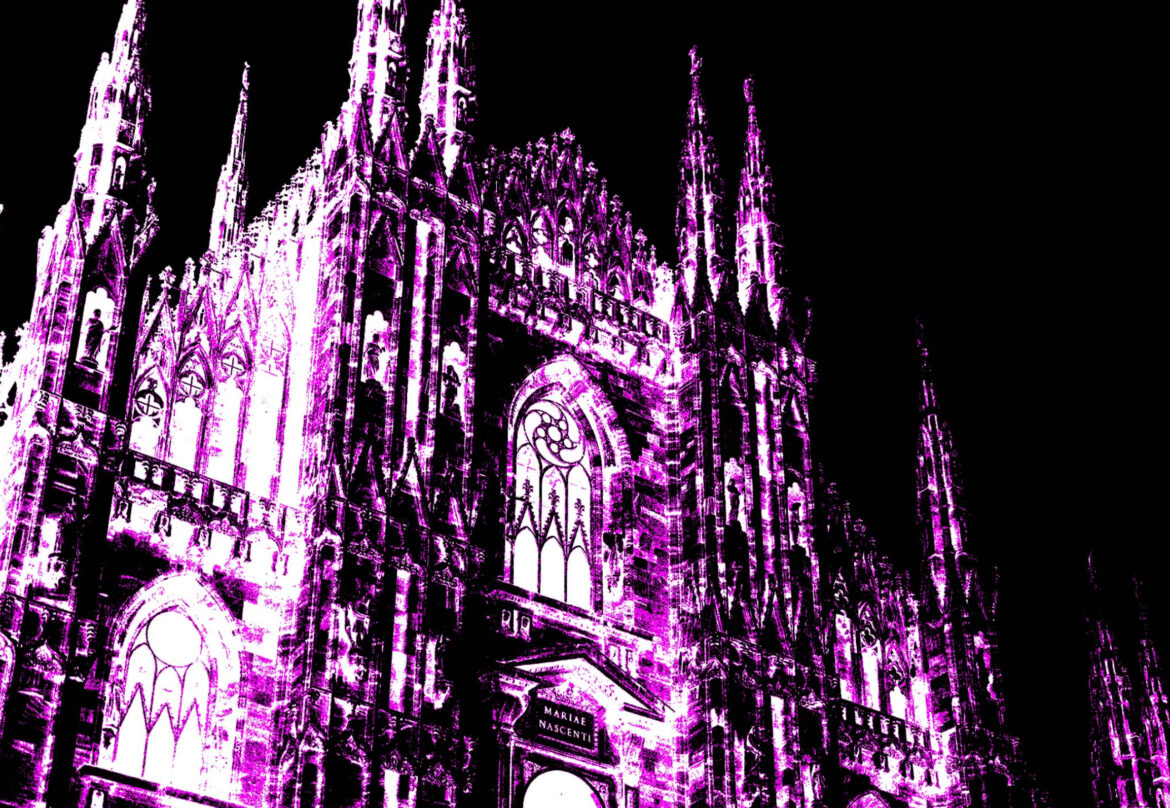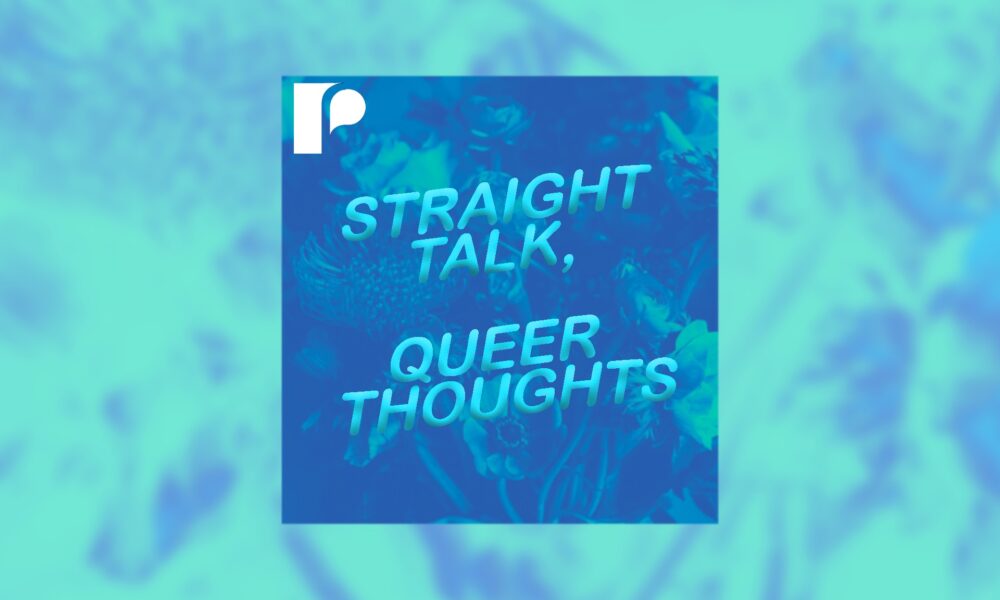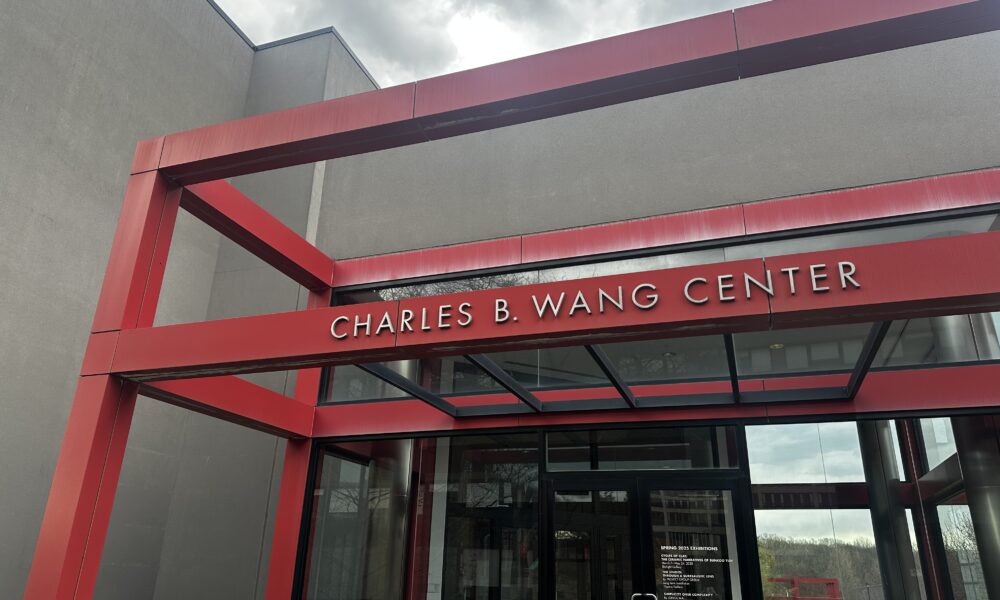Graphic by Liam Hinck
More than half of adults raised Catholic have left the church at one point in their life. If you were to ask me if I’d still consider myself Catholic, the only response I can give to that question is, “It’s complicated.”
While I wasn’t raised by a family that was active in the Church or attending worship every Sunday, religious messaging always loomed in my home. When I’d wake with a long day ahead of me, my mother would throw holy water on my head so I’d have the power of God on my side. Every achievement made, every heartbreak experienced and every unsure path was given to God and retold in prayer. When I first started questioning my sexuality, I turned to my mother, and she turned to the Bible. Religion was the first place I felt both comfort and hate.
It is hard to be queer and religious. There are no guidelines for reworking texts that have shaped culture for more than a thousand years. There will always be a person ready to tell you that to be a Catholic, you need to be straight. So, for a while, I tried to distance myself. I switched between agnostic and atheist, blaming my fading belief on a lack of scientific evidence even though I knew faith was the whole point. In retrospect, I didn’t care about how likely or not it was for God to exist at all.
That internal conflict didn’t exist in a vacuum. My real problem with religion didn’t just come from scripture — it came from how those beliefs played out in the people around me. My religious friends and families’ attitudes towards gay people were shaped by Catholic values. They didn’t have to be shouting Bible verses or be outwardly homophobic. The silence, subtle remarks and “don’t ask, don’t tell” mentality all reflected the shame that surrounds queerness. When connected to God, it made the bigotry I faced, no matter how elusive, much worse.
As I grew up and started coming to terms with my sexuality, I distanced myself from my mother. Her sly comments about the queer community became obvious, and I grew angrier at her for feeling that way. For so long, my mother was my hero, and all of a sudden, she was downgraded to a regular person with extensive flaws. And in my eyes, a lot of those flaws stemmed from Catholicism. The negative aspects of religion became so obvious to me. Beyond its stance on homosexuality, I started seeing more problematic verses in the Bible, once hidden by scriptures based on love. All signs pointed to religion as the source of bigotry, and a seed of doubt was planted in my mind. This doubt only grew when I started going to a Catholic middle school.
Coming straight from public school, I was determined not to let my new environment change me. Sporting a pixie cut and fresh off a summer spent on Tumblr, I looked, talked and acted as gay as a sixth grader possibly could. Though not a full-blown atheist, my doubts rooted in my sexuality and relationship with my mother gave me reason to push back. I wanted to be a contrarian voice in what I assumed would be a sea of bigotry and open hatred.
Instead, what I found was a shocking amount of neutrality. Beyond the 45-minute religion course and the overall religious messaging in the classrooms and during lectures, Catholic schools are quite similar to secular schools. Like in public schools, teachers found my queerness quirky. I wasn’t reprimanded for being gay, but it certainly wasn’t applauded. As often as I’d push back on their beliefs, they’d find a way to address what I said while still preaching the word of God. They weren’t perfect educators by any means, but I like to think they tried their best.
My classmates were also very accepting. I had a friend group made up of queer and straight people who didn’t let the fact that I was gay bother them. But the occasional slur or hurtful comment would tend to slip, especially from the kids I never got close to. This made me aware of how conditional my relationships were. I acted loud and proud, but I was scared to speak up, and when I did, the friendliness disappeared.
Everyone in that school knew that times were changing and queer people were at the forefront now more than ever. But the hatred that my teachers, my fellow students and I had seen growing up overshadowed reality. Even those students who had generally accepting parents experienced queerness through a subdued lens. Despite my attempts to be authentically me, I was still a secret and a burden to bear.
For my younger self, this quiet rejection felt worse than any physical bullying or homophobic slurs. Extremists like Moms for Liberty or the Proud Boys use religion as a scapegoat for their rage. Abusers like that don’t even attempt to follow the words of love spread throughout the Bible. I could believe in God and understand that my beliefs and theirs were inspired by different motivators. But those who exhibited subtle hatred and discomfort and still attempted to meet me halfway with understanding angered me more than anything. Their hatred aligned with scripture. Our God was the same but theirs rewarded their ‘generosity’ while mine left me isolated.
I wanted to believe, and I wanted to have a source of support I could always turn to. I was jealous of those who had succeeded at being religious when I had lost all hope of having that relationship with God. Seeing people go to church every week, actively celebrating religious holidays and taking the time to do a daily prayer made me feel less than. They were dedicated to a higher power and were willing to put in the work. I had faced too much hate in my life to justify putting in that energy to fix my relationship with God. And as the never-ending list of hate groups using religion as the basis for their bigotry grew, it was easier to chalk it all up as a hoax.
Yet, the older I got, the harder it was to hold on to this grudge I had against God and Catholicism. It was exhausting to pretend I didn’t want what others had and fall to hate instead. Watching others have a loving relationship with religion while I struggled to build my own was what made me flee in the first place. I longed for faith and purpose. That didn’t mean I joined a prayer group and started annotating my Bibles. I still haven’t. But it did mean that on especially hard days, I’d whisper a message to God in hopes that he’d hear. It meant when others used the Bible to spread hate, I’d know a verse or two to counter them. It means that before reading the news each morning, I have a little faith that the world might just turn out okay.
I’m not ready to dedicate myself to religion, whether that’s every week or just during the month of Lent. I’ve tried and failed to practice like a real Catholic and I’ll keep trying until it makes sense. My response in regard to my relationship with religion is always going to be, “It’s complicated.” Frankly, I have far too much baggage and am far too gay to ever be fully comfortable being a Catholic. But every year, I slowly find my way back and explore what my religion means to me. Every month, I find one verse or prayer that resonates with the path I think God has laid out for me. And every day, I look above my desk, where a tiny unused bottle of holy water stares me down as if to say, “I’m here when you’re ready.”




Comments are closed.